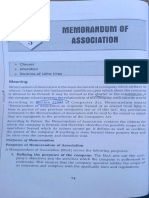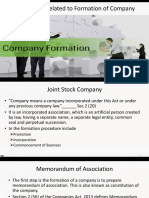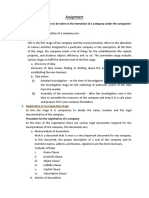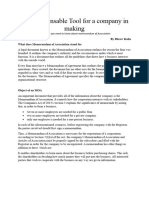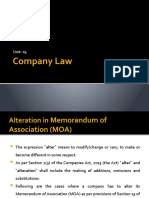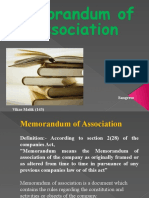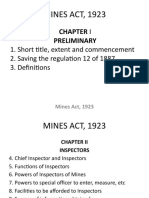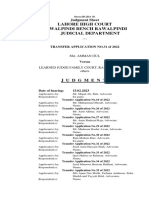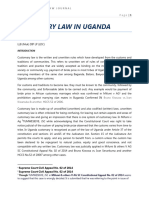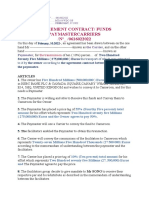0% found this document useful (0 votes)
61 views7 pagesModule 2 Formation of Companies
The document outlines the formation of a company, detailing the roles and types of promoters, their functions and duties, as well as the essential documents required such as the Memorandum of Association and Articles of Association. It explains the contents, requirements, and alteration processes for these documents, alongside the legal implications and liabilities associated with misstatements in a prospectus. Additionally, it covers the doctrines of ultra vires, constructive notice, and indoor management, providing a comprehensive overview of company promotion and formation.
Uploaded by
rinshidharaihanCopyright
© © All Rights Reserved
We take content rights seriously. If you suspect this is your content, claim it here.
Available Formats
Download as PDF, TXT or read online on Scribd
0% found this document useful (0 votes)
61 views7 pagesModule 2 Formation of Companies
The document outlines the formation of a company, detailing the roles and types of promoters, their functions and duties, as well as the essential documents required such as the Memorandum of Association and Articles of Association. It explains the contents, requirements, and alteration processes for these documents, alongside the legal implications and liabilities associated with misstatements in a prospectus. Additionally, it covers the doctrines of ultra vires, constructive notice, and indoor management, providing a comprehensive overview of company promotion and formation.
Uploaded by
rinshidharaihanCopyright
© © All Rights Reserved
We take content rights seriously. If you suspect this is your content, claim it here.
Available Formats
Download as PDF, TXT or read online on Scribd
/ 7











